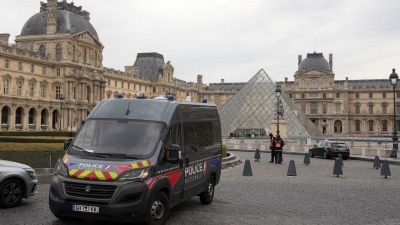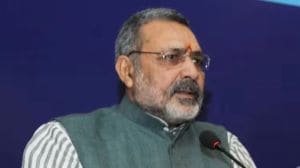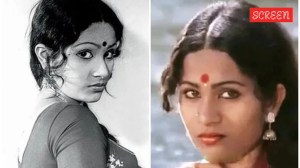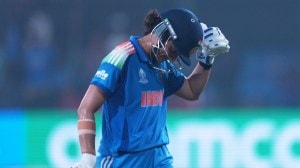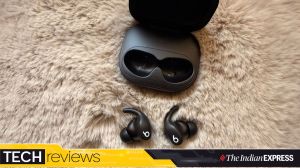Q wins first round in Bofors extradition, with a little UPA help
Argentine court’s refusal to extradite Quattrocchi is no surprise — official records obtained by The Sunday Express show how UPA’s top law officers gave him clean chit long before he was detained. Some of these records, his lawyer admits, he used to strengthen his case

A court in El Dorado, Argentina, this morning rejected the CBI’s request to extradite Ottavio Quattrochhi, the Italian businessman and the last principal accused of receiving payoffs in the Bofors case. This is the second rejection, the first one was by a Malaysian court in 2003.
However, for all the public statements by the CBI today — that it will study the verdict when it comes on June 13, that it will appeal to the Argentine Supreme Court — confidential records, obtained by The Sunday Express, show that long before he was detained in Argentina on February 6, Quattrocchi had already been given a clean chit by the UPA Government’s seniormost law officers, from the Attorney General to the Law Secretary, from the CBI’s Director of Prosecution to the Additional Solicitor General.
It was this clean chit that Quattrocchi’s lawyer Alejandro Freeland used in the court to his client’s advantage — a fact he admitted to this newspaper minutes after Judge Hachiro Doi dismissed the agency’s request. The CBI has until June 20 to file its appeal, Quattrocchi has been asked not to leave the country until June 18.
Speaking from Buenos Aires, Freeland told The Sunday Express that among the papers he presented to the judge was the opinion of S K Sharma, CBI’s Director of Prosecution — who was, ironically, present in the El Dorado courtroom — that the entire Bofors investigation had become untenable and that “there was no case.”
It was this opinion in 2005 that led to the CBI not filing an appeal against the Delhi High Court ruling by Justice R S Sodhi dismissing the case against the Hindujas.
An official copy of Sharma’s confidential opinion is with The Sunday Express and although Freeland refused to divulge how he got a copy, he questioned the CBI’s credibility.
“I wonder what the CBI was doing in El Dorado,” said Freedland. “I showed (the judge) Sharma’s opinion as well as the two High Court judgments but the CBI did not even bring the High Court judgment of R S Sodhi with them. They withheld so much information that the judge saw through their game.” If the CBI withheld information, it perhaps had reason to — the record of it being over-ruled by the law officers at almost every step: from the High Court rulings to the decision to de-freeze the Rs 21-crore in his London accounts which the agency said was linked to the alleged Bofors payoffs.
Consider the following, according to official records:
• On September 2, 2005, Sharma argued against challenging the High Court (Sodhi) verdict. He noted, “It would really be a travesty of justice and fair play, if accused (the Hindujas) are forced to face trial without any definite time and then at the end of the day — say after 15/20 years the court passes an order of not guilty.”
• Sharma also said he was against the CBI filing its first chargesheet (in 1999)”…we had no case under the Prevention of Corruption Act or for any offence under the Indian Penal Code or at least our case was very weak.”
• Law Secretary R L Meena, July 5, 2004: “The Bofors case was examined in this Department (the Law Ministry) vide notes produced and a view has been taken that it is not a fit case for filing an SLP in the Supreme Court.”
• The same day, Attorney General Milon K Banerji: “I have perused the papers, in particular, the careful summary prepared by Shri R L Meena, Law Secretary. I agree with the view of the Law Secretary that this is not a fit case for filing a Special Leave Petition.”
• Additional Solicitor General K P Pathak, October 7, 2005, argued for defreezing of Quattrocchi’s UK accounts: “The CBI was unable to show that the funds had any link with the offence alleged. It is clear that even as regards Quattrocchi, on a parity of reasoning, there is no authentic evidence to connect him with the alleged offence and the case against him cannot stand in a court of law.”
• Additional Solicitor General B Datta, in a report emailed to CBI on December 23, 2005 (after his London visit where he ordered the defreezing of Quattrocchi’s accounts): “The conclusion is that there is no likelihood of the case against Quattrocchi ever succeeding and thus he should not be prosecuted any further is founded on the factual position that the CBI does not have in its possession the necessary relevant and admissible evidence as required under the provisions of the Indian Evidence Act.”
We will try him, said Italy in 2003, CBI said no
• The Sunday Express has learnt that the Italian government had made an “offer” to the CBI that it would hold a trial of Quattrocchi in Italy around the time then Italian Prime Minister Silvio Berlusconi was visiting in November 2003.
• The agency held “internal, high-level consultations” of which Director U S Mishra was a part and decided not to take up the Italian offer.
• Offer came after Quattrocchi won his extradition case in Kuala Lumpur and had returned to Italy and Italian authorities were unwilling to confirm his whereabouts resulting in Interpol putting out a fresh Red Corner Notice.
Case against Q
• CBI officials say cheating is the only charge that Quattrocchi faces but the agency spent crores and sent its officers across the world to establish the trail of funds linked to his company’s account, AE Services, into which $7.34 million was transferred in September 1986 as part of the alleged Bofors kickbacks.





- 01
- 02
- 03
- 04
- 05


